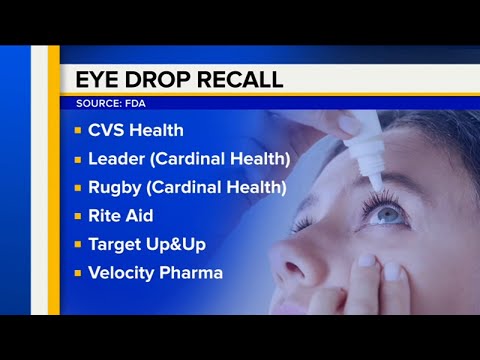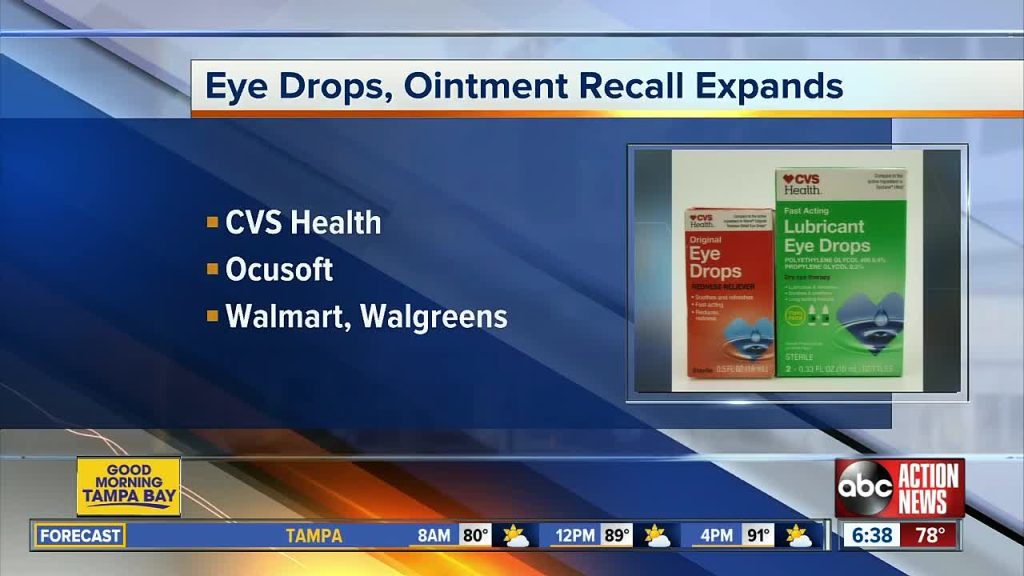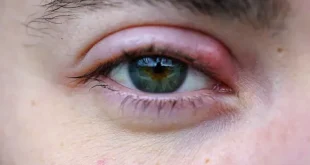In recent months, several eye drops sold at CVS and other retailers have been recalled due to safety concerns. Eye drops are commonly used for various conditions, such as dry eyes, allergies, and infections. However, when safety issues arise, it’s crucial for consumers to stay informed to protect their health. This article explores the details of these recalls, the reasons behind them, and what to do if you have purchased any affected products.
Understanding the Recall
What Is a Recall?
A recall is an action taken to remove a product from the market due to safety concerns or defects that could harm consumers. Recalls can happen for various reasons, including contamination, mislabeling, or the presence of harmful substances.
Why Are Eye Drops Recalled?
Eye drops may be recalled for several reasons, including:
- Microbial Contamination: Bacterial or fungal contamination can pose serious risks, especially for people with weakened immune systems or those who wear contact lenses.
- Incorrect Labeling: Mislabeling can lead to improper use, which may cause adverse effects.
- Quality Control Issues: Manufacturing defects that affect the efficacy or safety of the product.
Recent CVS Eye Drops Recalls
1. EzriCare Artificial Tears
One of the most notable recalls involved EzriCare Artificial Tears, which were sold at CVS and other pharmacies. This product was recalled due to concerns over contamination with Pseudomonas aeruginosa, a potentially deadly bacteria.
Details of the Recall
- Date of Recall: The recall was announced in early 2023 after reports of severe eye infections and other complications.
- Affected Lot Numbers: Specific lot numbers were identified, and consumers were advised to check their products against these numbers.
- Health Risks: Using contaminated eye drops can lead to serious infections, including keratitis and endophthalmitis, which can result in vision loss.
2. Delsam Pharma Artificial Tears
Delsam Pharma Artificial Tears were also recalled due to similar contamination issues. These eye drops were found to contain bacteria that posed significant health risks.
Details of the Recall
- Date of Recall: The recall was initiated in early 2023, coinciding with the EzriCare recall.
- Reason for Recall: Microbial contamination was the primary concern, prompting the recall to protect consumers.
- Symptoms to Watch For: Those using the affected products experienced symptoms such as redness, irritation, and vision changes.

Identifying Affected Products
How to Check Your Eye Drops
If you have purchased eye drops recently, it’s essential to check whether they are part of the recall:
- Check the Brand: Look for EzriCare or Delsam Pharma on the label.
- Look at Lot Numbers: The lot number is typically printed on the box or bottle. Compare it to the recalled lot numbers listed on the FDA or manufacturer websites.
- Expiration Date: Ensure the product is still within its expiration date; expired products should be discarded even if not recalled.
Where to Find Recall Information
- FDA Website: The U.S. Food and Drug Administration (FDA) maintains a list of recalls and safety alerts. You can search for specific products or browse through the latest recalls.
- Manufacturer Websites: Visit the official websites of the manufacturers for detailed information on recalls, including specific lot numbers and safety guidance.
- CVS Website: CVS may also provide updates on recalls related to products sold in their stores, including instructions on how to return or dispose of affected items.

What to Do If You Have Affected Products
1. Stop Using the Product
If you determine that your eye drops are part of a recall, the first step is to stop using them immediately. Continuing to use contaminated eye drops can lead to serious health issues.
2. Return or Dispose of the Product
Follow the manufacturer’s instructions on returning or disposing of the recalled eye drops:
- Returning Products: Many retailers, including CVS, allow customers to return recalled products for a full refund or exchange. Bring the product and your receipt to the store.
- Safe Disposal: If returning is not an option, dispose of the eye drops safely. Do not simply throw them in the trash. Instead, follow local guidelines for medication disposal or take them to a pharmacy that offers disposal services.
3. Monitor Your Health
Keep an eye on any symptoms that may arise after using the recalled products:
- Watch for Symptoms: If you experience redness, swelling, or changes in vision, seek medical attention promptly.
- Consult a Doctor: If you have concerns about infections or have experienced symptoms after using the affected eye drops, consult an eye care professional for a thorough examination.
The Importance of Eye Drop Safety
1. Understanding Risks
Using eye drops, especially those purchased over-the-counter, can carry risks if the products are contaminated or improperly formulated. Awareness of recalls is essential for protecting your health.
2. Choosing Safe Alternatives
If you need eye drops for dry eyes or allergies, consider these tips for safe alternatives:
- Consult a Healthcare Provider: Talk to your eye doctor about the best options for your specific needs.
- Look for Trusted Brands: Use eye drops from reputable manufacturers that prioritize safety and quality control.
- Check for Certifications: Look for eye drops that have been approved by the FDA or other regulatory bodies.
Conclusion
The recall of CVS eye drops such as EzriCare and Delsam Pharma serves as a reminder of the importance of vigilance when using over-the-counter medications. Always check product labels and stay informed about recalls to ensure your eye health is protected. If you suspect you have used a recalled product, take immediate action by discontinuing use and consulting a healthcare professional if necessary.
By being proactive and aware, you can enjoy the benefits of eye drops while minimizing the risks associated with contamination and improper use. Your eyes deserve the best care possible, so stay informed and prioritize safety in your eye health journey.
